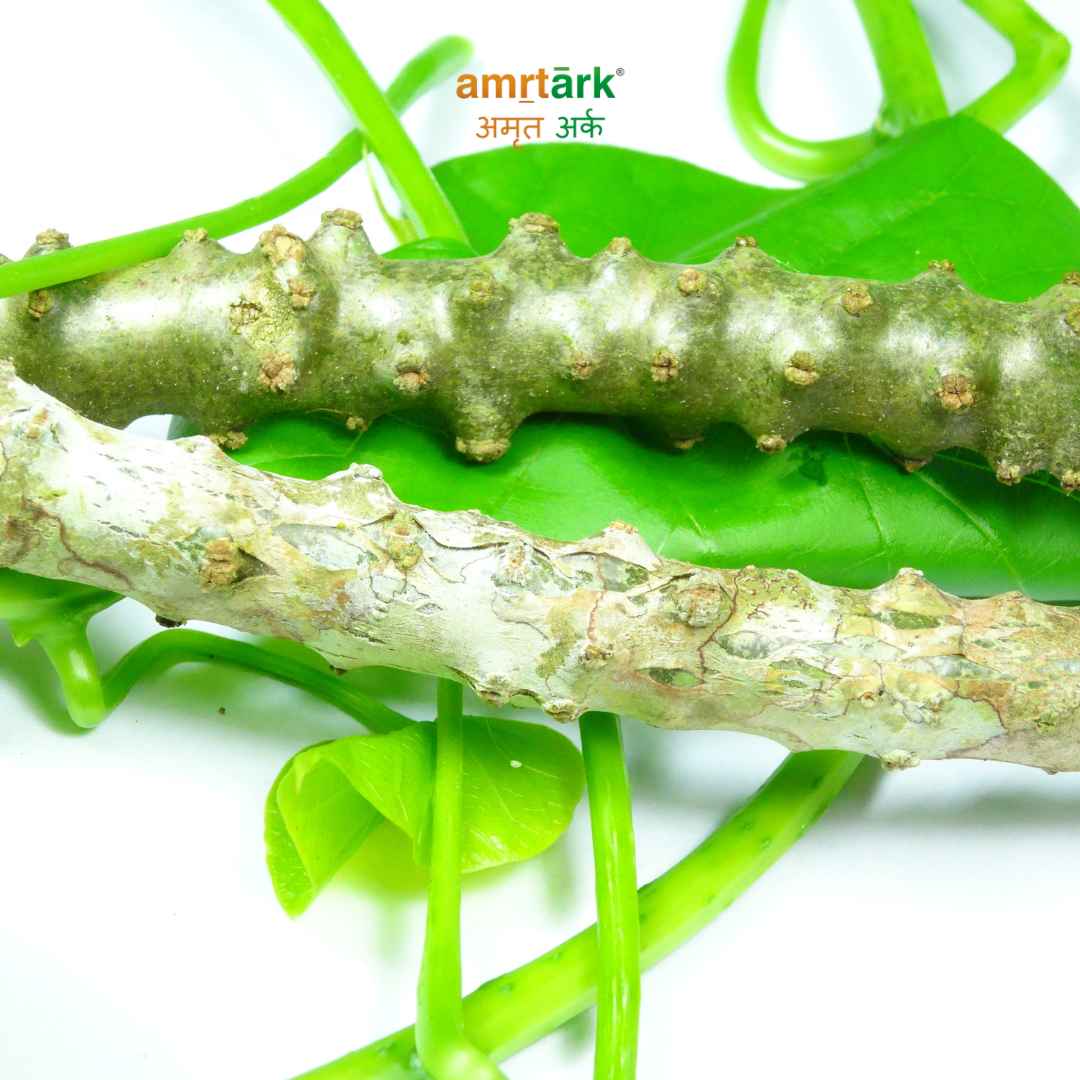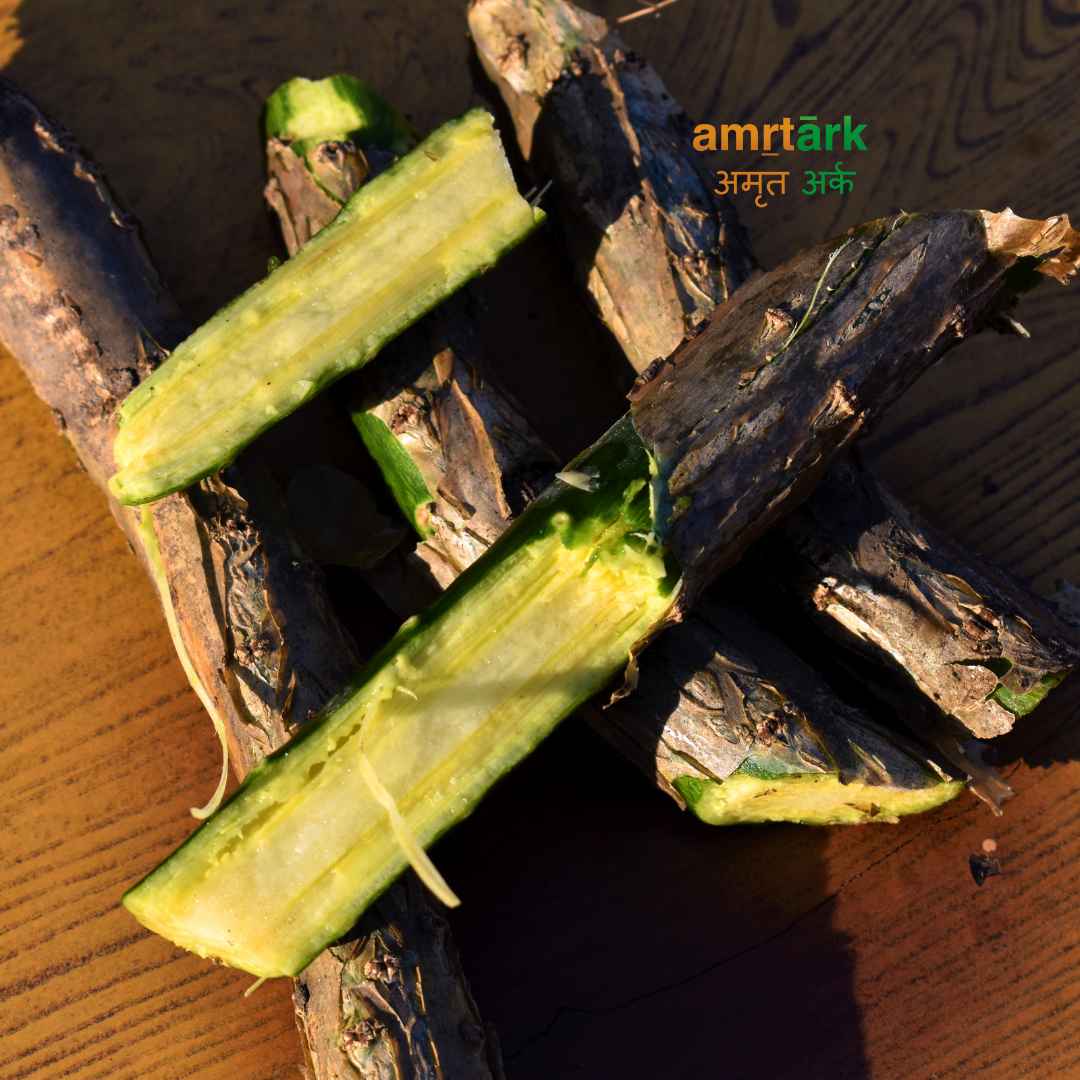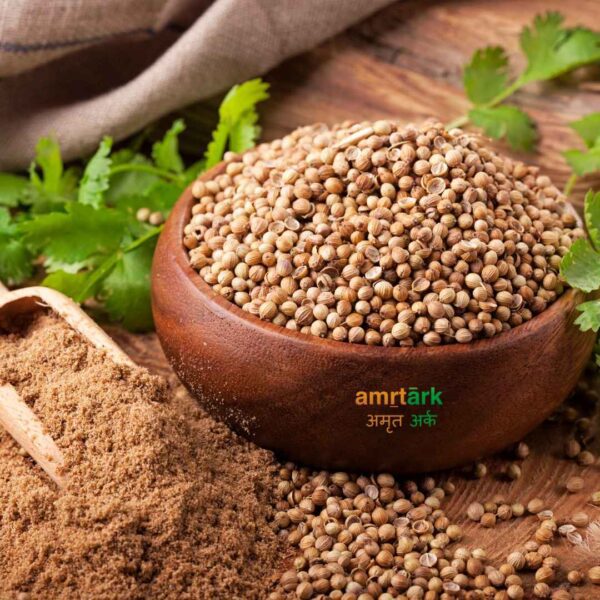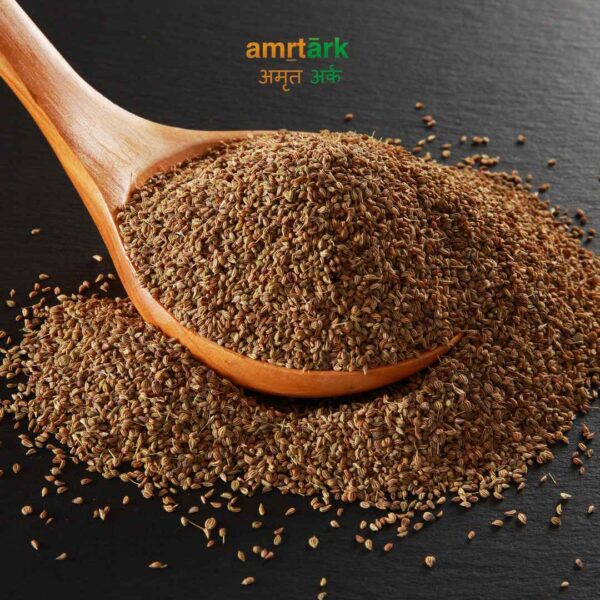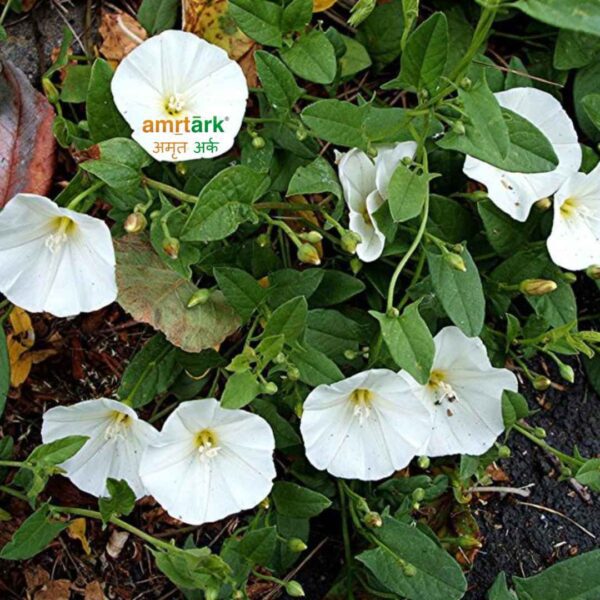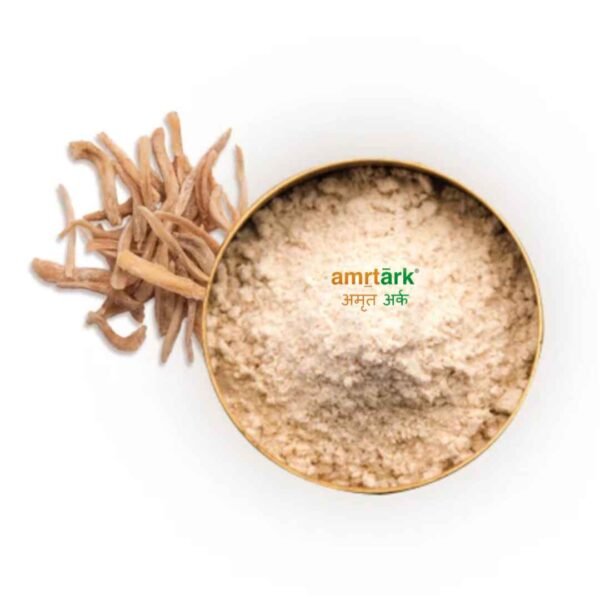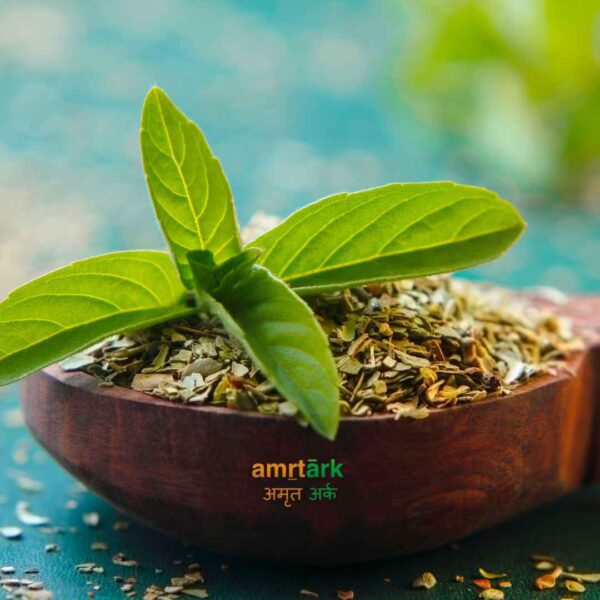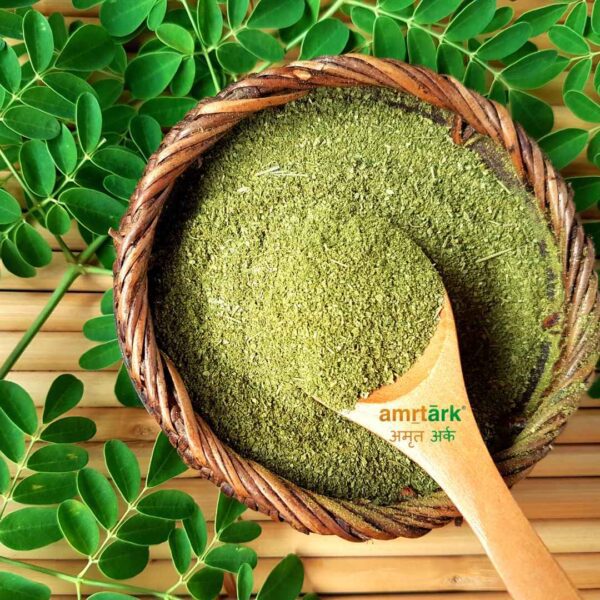Description
Giloy (Guduchi / Tinospora cordifolia)
Giloy, also known as Guduchi in Sanskrit, is a highly revered herb in Ayurveda for its potent rejuvenating, detoxifying, and immunity-boosting properties. Scientifically named Tinospora cordifolia, Giloy is often called Amrita, which means “the root of immortality,” because of its numerous health benefits and ability to promote longevity. The herb has been used for centuries in traditional medicine to treat a wide range of ailments, from fever to chronic diseases.
Botanical Characteristics
- Common Names: Giloy, Guduchi, Amrita, Heart-leaved Moonseed
- Scientific Name: Tinospora cordifolia
- Family: Menispermaceae
- Appearance: Giloy is a climbing shrub with heart-shaped leaves and yellowish-green flowers. The stem, leaves, and roots of the plant are used for their medicinal value. It thrives in tropical climates and can often be found growing on trees or walls.
Active Compounds and Nutrients
Giloy contains several bioactive compounds responsible for its therapeutic effects. Key components include:
- Alkaloids: Tinosporine, magnoflorine
- Glycosides: Giloin, tinosporides
- Steroids: Ecdysteroids, berberine
- Flavonoids: Known for their antioxidant properties
- Polysaccharides: Immunomodulating compounds
These compounds contribute to Giloy’s antioxidant, anti-inflammatory, antipyretic (fever-reducing), and immunomodulatory effects.
Health Benefits of Giloy (Guduchi)
- Boosts Immunity: Giloy is well-known for enhancing the immune system. It strengthens the body’s defense mechanisms by promoting the production of white blood cells and enhancing the activity of macrophages, which fight pathogens. It is often used to protect against common infections and improve overall health.
- Antipyretic (Fever Reducer): Giloy is widely used to reduce fevers, particularly chronic and recurring fevers. It is considered effective in treating fevers associated with malaria, dengue, and influenza. The herb helps lower body temperature while boosting the body’s ability to fight the infection causing the fever.
- Detoxification and Liver Health: Giloy acts as a natural detoxifier, helping to cleanse the body by removing toxins. It supports liver function and protects the liver from damage caused by infections, free radicals, or long-term medication use, making it an excellent herb for treating jaundice and other liver disorders.
- Anti-inflammatory: Giloy has potent anti-inflammatory properties that help reduce inflammation in conditions like arthritis, gout, and rheumatism. It helps ease joint pain, swelling, and stiffness by inhibiting the production of pro-inflammatory cytokines.
- Respiratory Health: Giloy is useful in treating respiratory problems such as asthma, coughs, and bronchitis due to its anti-inflammatory and bronchodilator effects. It helps clear mucus from the airways, making breathing easier for those with respiratory disorders.
- Digestive Health: Giloy improves digestion by promoting healthy gut flora and reducing acidity, indigestion, and gas. It is commonly used in treating hyperacidity, ulcers, and other gastrointestinal issues. Its anti-inflammatory effects also help in treating colitis and other inflammatory bowel conditions.
- Blood Sugar Regulation: Giloy has been found to help regulate blood sugar levels and improve insulin sensitivity, making it beneficial for managing type 2 diabetes. It helps reduce oxidative stress, which is often associated with high blood sugar levels.
- Skin Health: Due to its detoxifying properties, Giloy is often used to promote clear and healthy skin. It helps treat skin problems such as acne, eczema, and other dermatological conditions by purifying the blood and promoting wound healing.
- Stress and Anxiety Relief: Giloy acts as an adaptogen, helping the body cope with stress and anxiety. It promotes mental clarity, reduces tension, and helps balance cortisol levels, contributing to a sense of calm and well-being.
- Antioxidant Powerhouse: Giloy is rich in antioxidants, which help neutralize free radicals and protect cells from oxidative damage. This contributes to its anti-aging properties and its ability to prevent degenerative diseases.
Traditional and Ayurvedic Uses
In Ayurveda, Giloy is classified as a Rasayana herb, meaning it promotes longevity, vitality, and overall wellness. It is considered Tridoshic, meaning it balances all three doshas—Vata, Pitta, and Kapha—making it suitable for most people. Giloy is traditionally used to:
- Treat chronic fevers and malaria
- Enhance longevity and vitality
- Improve digestion and liver function
- Support respiratory health
Modern Uses and Forms
Giloy is available in various forms:
- Giloy Juice: Made from fresh or dried stems, Giloy juice is one of the most common ways to consume the herb for boosting immunity and detoxification.
- Giloy Powder: The powdered form is often added to water, milk, or honey for easy consumption.
- Capsules/Tablets: Standardized extracts of Giloy are taken as supplements for long-term health benefits.
- Giloy Tea: Giloy is sometimes brewed as a tea for its digestive, antipyretic, and immunity-boosting properties.
Side Effects and Precautions
Giloy is generally safe for most people when taken in the recommended doses. However, people with autoimmune disorders like rheumatoid arthritis or lupus should exercise caution, as Giloy can stimulate the immune system. Pregnant and breastfeeding women should consult their healthcare provider before using Giloy. Excessive use may lead to constipation or lower blood sugar levels in some individuals.

